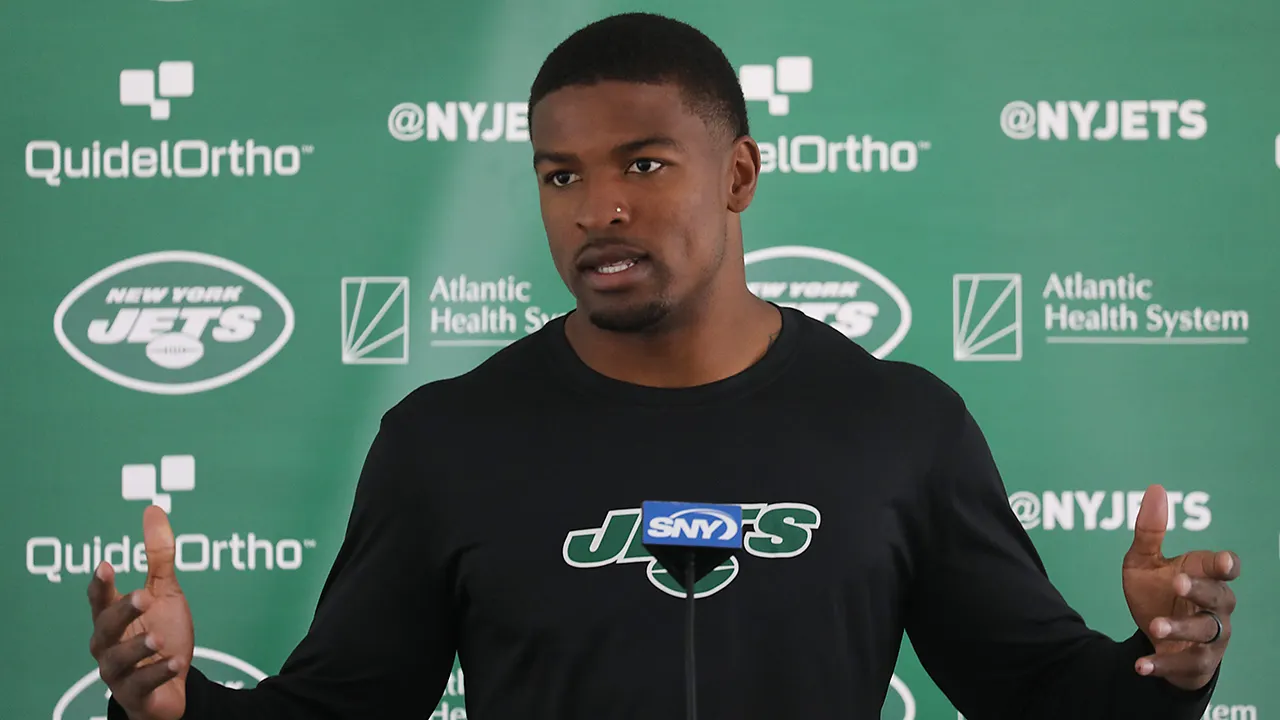DJ Reed Voices Concerns Over NFL Officiating Standards
The National Football League (NFL) has long been a subject of scrutiny regarding its officiating practices, and recent comments from New York Jets cornerback DJ Reed have reignited discussions about the quality and consistency of officiating in professional football. Following a controversial call during a recent game, Reed took to social media to express his frustrations, highlighting a growing unease among players and fans alike regarding the standards applied by officials.
Understanding the Controversy
In the world of the NFL, officiating decisions can significantly impact the outcome of games. Reed’s criticism came in response to a specific play that many believed was mishandled by the officiating crew. Although the details of the call remain contentious, Reed’s remarks have shed light on a broader issue that has plagued the league for years.
Social Media’s Role in Modern Sports Commentary
Social media platforms have become vital tools for athletes to communicate their viewpoints directly to fans. DJ Reed’s decision to air his grievances online reflects a shift in how athletes interact with their audience and express their frustrations. This direct line of communication allows players to engage with their fanbase, but it also opens the door for potential backlash and the escalation of disputes.
- Increased visibility for player concerns
- Potential for fan reactions to influence league policies
- Risk of misinterpretation or amplification of conflicts
The Impact of Officiating on Game Outcomes
Officiating decisions can sway the momentum of a game, affecting not only the score but also the mental state of players. Critiques of officiating practices often focus on the following issues:
- Inconsistency: Different officials may interpret rules differently, leading to confusion and frustration among players.
- Training and Standards: There are ongoing discussions about whether officials receive adequate training and whether the standards for officiating are uniformly applied across the league.
- Technology and Review: While the NFL has implemented technology to aid in officiating, debates continue over how effectively these tools are utilized in real-time decision-making.
Reed’s Perspective on the Current State of Officiating
During his social media outburst, DJ Reed pointed out specific instances where he believed the officiating fell short. He emphasized that players put their bodies on the line each game, and such calls can undermine their efforts and lead to significant consequences. Reed’s comments echo sentiments shared by other players across the league who have also voiced their frustrations regarding officiating inconsistencies.
Broader Implications for the NFL
The criticisms of officiating extend beyond individual games, as they raise crucial questions about the NFL’s governance and operational procedures:
- League Accountability: How does the NFL hold officials accountable for poor decision-making? The lack of transparency in officiating reviews can lead to a growing distrust among players and fans.
- Fan Experience: For many fans, officiating controversies can detract from the enjoyment of the game. As more players like Reed speak out, the league may feel pressured to address these issues more transparently.
- Future of Officiating: As the NFL evolves, the need for improved officiating standards may drive the league to consider changes in how officials are trained and evaluated.
Comparative Analysis: Other Sports Leagues
Other professional sports leagues, such as the NBA and NHL, have faced similar challenges with officiating. These leagues have implemented various methods to enhance officiating standards, such as:
- Real-Time Reviews: Utilizing technology to review contentious calls during games.
- Official Accountability: Publicly releasing officiating reports and statistics to promote transparency.
- Player Feedback Mechanisms: Creating avenues for players to provide feedback about officiating in a structured manner.
As the NFL evaluates its approach to officiating, it can look to these examples for inspiration and potential solutions.
Conclusion: The Future of NFL Officiating
DJ Reed’s outspoken criticism of officiating has opened the floodgates for a necessary dialogue about the standards and practices that govern the game. The NFL’s ability to address these concerns will be critical in maintaining the integrity of the sport and ensuring that players feel their voices are heard.
Moving forward, it is essential for the league to take proactive steps to improve officiating standards, foster accountability, and leverage technology effectively. As discussions continue, it will be interesting to see if the NFL implements changes that not only appease players like Reed but also enhance the overall experience for fans.
For more insights on the state of officiating in the NFL, visit the official NFL page on officiating: NFL Official Rules.
To follow DJ Reed and keep updated on his thoughts and the latest developments in the league, check out his Twitter profile: DJ Reed Twitter.
See more Sky News Portal



